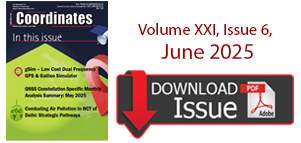| Conference | |
Land administration Trends and issues in the Asia and Pacific
|
||||
| TThe UN sponsored Permanent Committee on GIS Infrastructure
(PCGIAP) together with the Food and Agriculture Organization of the United Nations (FAO), the Malaysian Government, the International Federation of Surveyors (FIG), the Global Spatial Data Infrastructure Association (GSDI) and the Centre for SDIs and Land Administration, University of Melbourne, were organized a two day seminar from 19-20 August 2008 as part of 14th annual meeting of PCGIAP in Kula Lumpur to discuss land administration issues and possibility of establishing an annual forum under the UN in the Asia and Pacific region. The Seminar was Chaired by Prof Ian Williamson and co-chaired by Associate Professor Abbas Rajabifard. Over 150 people from 30 countries and 5 international organisations attended the seminar. The objectives of the seminar were: • To share land administration experiences in the Asia and Pacific region with a focus on access to land and security of tenure, the role of land administration in supporting sustainable development, the promotion of effective land markets, poverty reduction, protection of vulnerable groups, eland administration, land registration, cadastral surveying and mapping. • To discuss the objectives and focus proposed by the Mongolian Round Table with a view to preparing a firm proposal to go to the appropriate UN agencies as well as the PCGIAP. It is planned to have a firm proposal and resolution to be put before the UN Cartographic Conference for Asia and the Pacific in Bangkok in 2009. The seminar was the result of a desire by many countries in the Asia and the Pacific region to have a forum to discuss and share land administration issues, best practice and experiences in a similar manner to the Working Party on Land Administration (WPLA) for European countries organized by the UN Economic Commission for Europe (UNECE). The focus of the seminar was developed both by the PCGIAP and a successful international workshop organized by the Mongolian Government titled “Good land administration – its role in economic development” (www.la-east.west.mn) , that was also supported by UNDP, UNECE (WPLA), GSDI Association, the International Federation of Surveyors, the Asian Development Bank, German Technical Assistance (GTZ), Eurogeographics and the National Land Survey of Sweden. A Round Table meeting was also held in Mongolia with the above agencies and a number of countries in the region to develop a draft proposal for a regular meeting on Land Administration in the Asia and Pacific region.
As part of the seminar program, there were more than 20 presentations including invited presentations from FAO – Land Tenure Service and UNECE – WPLA and also selected countries from Asia- Pacific that presented. The seminar was conducted in six sessions including an opening session, three invited speaker sessions and a special session on data integration. Each session and presentation followed with a panel discussion. The countries presented were Australia, Cambodia, Fiji, Iran, Laos, Malaysia, Mongolia, New Zealand, Philippines, South Korea, Thailand and Vietnam. Seminar OutcomesThe final session of the seminar and a follow-up meeting were used to discuss and finalise seminar outcomes, resolutions and the report to the PCGIAP. In summary, the following items are feedback from the Seminar: • Mongolia, Iran, Cambodia, Fiji (on behalf of Pacific Island nations), Australia, Philippines and Indiaexpressed strong support from senior land administration officials for the concept of an annual land administration forum • Iran has offered to host the next land administration forum in 2009 in May (prior to 18th UNRCC- AP Conference in Bangkok in October 2009. • Australia speaking for FIG 2010 has offered to host a Pacific forum and an Asia and Pacific land administration forum. • Australia through Western Australia offered to co-host a WALIS Forum with PCGIAP or host a land administration forum. • Land Administration meetings or forums must be demand driven (provides value and helps solve problems), must pursue cost sharing, focus on specific problems or be thematic. • Be committed to long term. Building a community takes time. Must be sustainable. • Be opportunistic and look forindividual funding opportunities • Collaboration not competition. • A forum must be linked to the UN in some way. From the issues and challenges presented by speakers and feedback from the Seminar to support the establishment of an annual forum in Asia-Pacific region, the seminar discussed and agreed on the following three resolutions and further agreed to forward this to the PCGIAP meeting for consideration.Following are the resolutions as modified and agreed during the PCGIAP plenary on the 22nd August, 2008. Resolutions1. Rename WG3 “Land Administration” with a mandate to consider land administration (land policy, land registration, cadastre, land markets) issues, spatially enabling government and their joint role in supporting sustainable development in the context of SDI. 2. PCGIAP supports an annual land administration forum and related activities focusing on land administration issues, challenges and implementation in the Asia and Pacific region. 3. WG3 will facilitate the annual land administration forum and any other related activities and will liaise with the respective agencies in the Asia and Pacific region through WG3 in the pursuit of this objective Further information about the Seminar (background document, aims and objectives, seminar outcomes, etc.) and other related materials can be found at the dedicated seminar website http://www.geom.unimelb. edu.au/research/SDI_research/ Integrated/ or through the PCGIAPWG3 web page (www.pcgiap.org). –Associate Professor Abbas Rajabifard Seminar Co-Chair and PCGIAP-WG3 Vice-Chair (abbas.r@unimelb.edu.au) |
||||














 (24 votes, average: 1.42 out of 5)
(24 votes, average: 1.42 out of 5)




